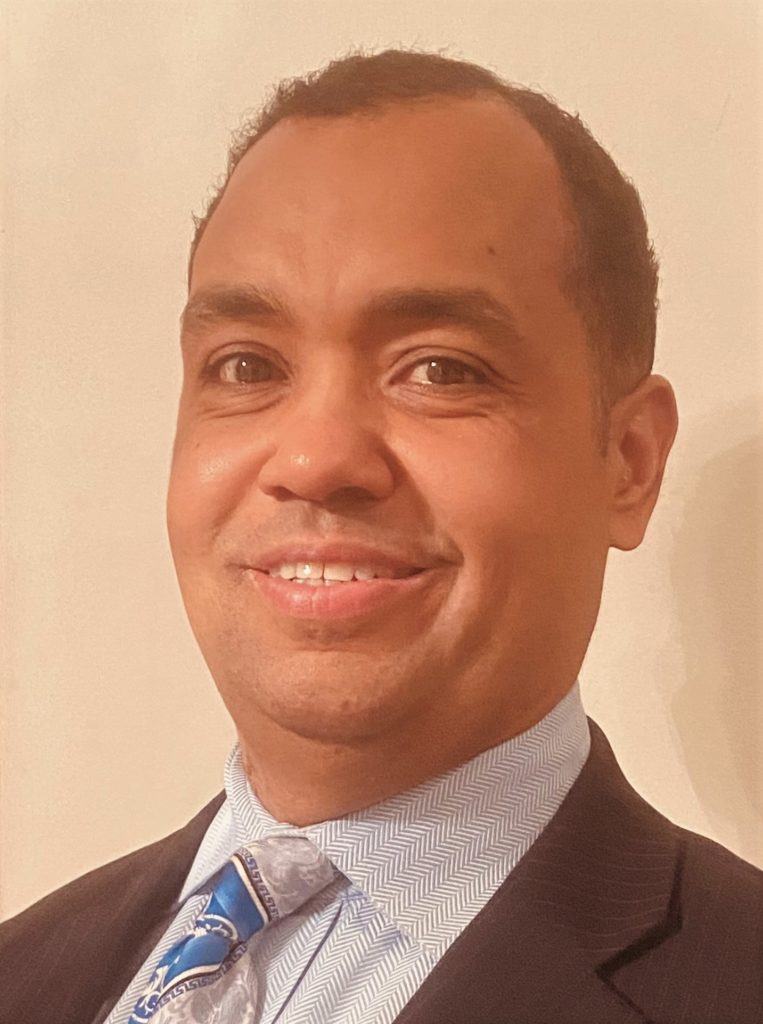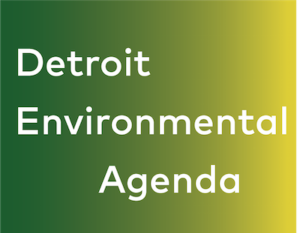Coleman A. Young II
At-Large Candidate for City Council

Q: Where can people go to learn more about your biography? If not readily available online, please describe in 150 words or less, your relevant experience, public offices held (if any), involvement in environmental causes, and membership in any environmental organizations. If you currently hold office, describe any votes or actions demonstrating concern for the environment.
A: Campaign website to be released
Community
Q: If elected, how will you work with Detroit residents to ensure that they benefit from and partake in the decision-making surrounding local development projects and that potential adverse impacts of those projects are identified, measured, monitored and mitigated? Moreover, how would you work to put more power into the hands of residents to maintain and revitalize their own communities and to access vacant land through the DLBA?
A: We want to increase the number of Citizen Advisory Councils. We want to make changes to the community benefits ordinances to allow greater citizen participation. We want to bring our community meetings to the neighborhoods where development is occurring. We want to invest more in Neighborhood Opportunity Funds (NOF) to beautify the neighborhoods. We want to work with the administration and our federal, state, county and non-profit philanthropic partners to accomplish the above listed goals.
Q: If elected, what budget appropriations would you propose to increase investment in needed social and environmental services to help improve the quality of life and health of Detroit residents?
A: I would increase funding to the Public Works Department and General Services Department for beautification and aesthetic improvements. I would allocate more money for capital improvements for blue and green infrastructure. I would lead more investment o enforce penalties on illegal dumping. Invest more in the Community Health Corps. I want to work with the administration and our partners in the mental health field, as well as continue our conversations with Wayne Integrated Health Network and the Detroit Police Department for mental health training and services. Work with our State partners to invest more in group homes and mental health facilities. Work with the City’s Public Health Officer and administration to improve nonprofit assistance with residential mental health issues.
Public Health
Q: What long term solutions do you see for addressing vehicle speeds and making our streets safer?
A: We need to have more speed bumps and humps, rumble strips and posted speed limits that are enforced. We need to work our performance street car racing industry partners to provide outlets for racing
Q: How will you work to reduce the negative health impacts of air quality on the residents of Detroit?
A: Work with the administration, state EGLE and federal EPA partners to focus our efforts on air quality via the Air Quality Index. As well as, nonprofit organizations that are focused on the air quality for the citizens of 48217 and Detroit. In addition, work with the Public Health Officer and other nonprofits that focus on the health of citizens that are impacted by poor air quality to provide them with monetary and medical relief for their health improvements.
Q: If elected, what actions will you take to work toward safer, healthier, and more affordable housing for all Detroiters?
A: I would work with the administration and my colleagues to bring in the Urban Institute’s National Neighborhood Indicators Partnership, NNIP, which is a learning network connecting partner organizations in 30 cities, including Detroit, through Data Driven Detroit. NNIP ensures that communities have access to data and the skills to use information to advance equity and well-being across neighborhoods. Further, we need to focus on what the data indicates so that we can make greater improvements to the health and safety of more affordable housing for Detroiter.
Energy
Q: What are your priorities to reduce emissions and lessen the impacts of climate change in Detroit during your term in office?
A: My priority to reach the reduction of carbon emissions by 35% by 2024 as set by the City Council would require working with the administration EGLE the EPA and the Urban Institute and NNPI to first increase the priority of reduction of emissions for City Government. Then work with community groups and nonprofits to increase their awareness of this issue. Then work with the community liaison from DTE and our congressional partners to accomplish this federal EPA Clean Air requirement. We also need a truck traffic ordinance that redirects trucks away from the residential neighborhoods. Also, we need an incentive program to retro fit trucks to electrify or use alternative fuels that burn cleaner with fewer emissions.
We need to use more carbon forests. Use federal financing to invest more in air infiltration units in southwest Detroit, working with our federal and state partners. As well as use zoning laws and building inspectors to enforce the building codes for energy efficiency in our residential building. Work with the administration to electrify the city vehicle fleet and bus systems.
Q: What are your plans for helping the city transition to renewable energy and how will you ensure that the cost benefits and increased resilience that come from the use of renewables is made accessible to low-income and vulnerable communities across Detroit?
A: I would work with the administration’s Climate Equity Advisory Council (CEAC) and its approach to the citizens, as well as the Detroit City Council Green Task Force to make improvements that help reduce the carbon emissions by 35% by 2024. Use zoning to invest more in solar energy.
Recycling
Q: How can the city increase recycling, composting, and the use of post-consumer recycled materials, while addressing the city’s litter and illegal dumping problem?
A: We need to have a city-wide curbside recycling community education program. We need a recycling program in mixed used, multi-purpose buildings. Then we need a set a target for recycling and composting. And we need to work with the Eastside Community Network to establish target percentages for recycling and composting programs.
Jobs
Q: What steps would you take to prepare the local workforce to take advantage of and be part of the movement toward a green economy, through qualifying for good paying infrastructure and clean energy jobs, amongst others?
A: We need to work with Workforce Development, Detroit Economic Solutions Corporation, Skilled Trades Task Force and our labor brothers and sisters to teach deconstruction, bioswales, permeable concrete, retention ponds, wetlands and other green construction that provides green jobs.
Water
Q: How will you ensure that clean water is accessible and affordable to all Detroiters?
A: Implement a Detroit Water Affordability Plan, which I supported in 2005. We need to continue the moratorium on water shutoffs that we have right now, Use the capital improvements budget and the federal infrastructure plan to reduce the number of leaks that we have in the current system that are increasing the water rates. Also, we need to use the capital improvements budget to expand the capacity of the pipes.
Q: How will you help municipal agencies and property owners integrate Green Stormwater Infrastructure (GSI) across the city to manage stormwater and reduce drainage charge fees for property owners?
A: We need to work with the administration to implement a city-wide community education program on Green Stormwater Infrastructure. We also need to pass ordinances encouraging green infrastructure and amend the Master Plan and zoning ordinances to include green infrastructure.
Optional
Q: Please identify the top environmental concerns to you personally, identify the environmental issue in your community that is the most pressing, and what you would like to do as an elected official to address this most pressing concern.
A: Neighborhood investment, blight, trash, litter, air quality, water accessibility, improper handling of construction materials (asbestos in the air and cadmium in the dirt, (lack of environmental construction remediation)).

